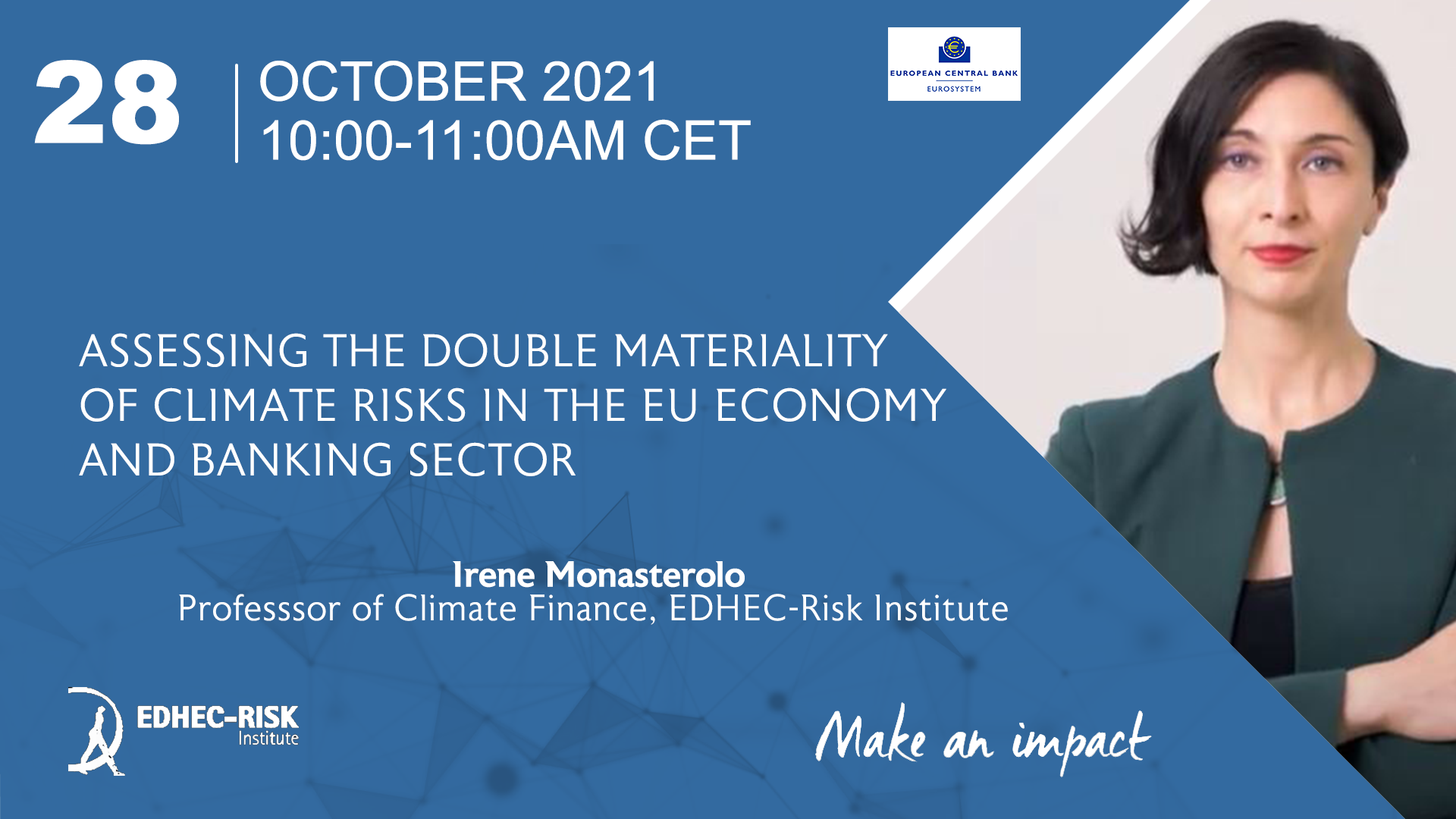Assessing the double materiality of climate risks: a dynamic climate stress test of the EU economy and banking sector

Irene Monasterolo has been invited by the ECB's Climate Change Centre (CCC) to conduct an internal seminar as part of their Green Seminar Series.
In January 2021, the European Central Bank (ECB) has decided to set up a climate change centre to bring together the work on climate issues in different parts of the bank. This decision reflects the growing importance of climate change for the economy and the ECB’s policy, as well as the need for a more structured approach to strategic planning and coordination. The new unit, which consists of about ten staff working with existing teams across the bank, reports to the ECB’s President, Christine Lagarde, who oversees the ECB’s work on climate change and sustainable finance.
On October 28, Irene will present her paper: "Assessing the double materiality of climate risks in the EU economy and banking sector" co-authored with:
- Régis Gourdel, Research Fellow, European Central Bank (ECB)
- Nepomuk Dunz, PhD Student, WU Vienna; Junior Professional Officer, World Bank
- Postdoctoral Researcher, Ca' Foscari University of Venice
- Laura Parisi, Team Lead, ECB Climate Change Center, European Central Bank (ECB)
This paper develops a dynamic climate assessment of NGFS climate physical and transition risks scenarios, for of the euro area economy and banking sector. By tailoring the EIRIN Stock-Flow Consistent model, we quantitatively assess the feedback from banks’ expectations about investment risk across NGFS scenarios and risk internalization (i.e. their climate sentiments), on:
(i) firms’ capital costs and performance,
(ii) the decarbonization of the economy and banks’ lending portfolios, and
(iii) the realization of climate mitigation scenarios.
Their results highlight the importance for financial supervisors to consider the role of investors’ expectations in the finance-economy-climate feedback, in order to design appropriate macroprudential policies for tackling climate risks.


